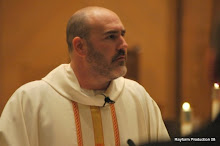This section begins with an interesting statement:
"By natural reason, man can know God with certainty, on the basis of his works" - I think our science teacher would love this one, right?
It begins by asserting that the gift of knowing God is a gift from God through Jesus and is evidence of God's desire to be known. God wants us to have "access to [Him]". The ultimate goal of God's revelation is to make us more malleable to adoption by God.
God's being is so vast that He has slowly revealed himself to us throughout time. The rest of this section is an exceptionally brief walk through Noah, Abraham and the forming of the Israel as God's chosen people.
It would seem then, that we begin with the idea that God can be known through reason. That reason, though, can only take us so far. God adds to this reason divine grace to help us deepen our knowledge of Him. This process of knowing God began before us and will continue after us, but the next section seems to be how this all culminates in the person of Jesus.
Wednesday, June 17, 2009
Subscribe to:
Post Comments (Atom)

My favorite explanation of how we know God through natural reason was back in paragraph 34.
ReplyDeleteThe world, and man, attest that they contain within themselves neither their first principle nor their final end, but rather that they participate in Being itself, which alone is without origin or end. Thus, in different ways, man can come to know that there exists a reality which is the first cause and final end of all things, a reality “that everyone calls ‘God.’”
So, reason and nature point us to the reality of God, but we depend on divine revelation to really know Him. I really like this straightforward explanation of the limitations of reason. In science we talk a lot about the differences between faith and science and students have a hard time understanding how they are separate yet connected. I am definitely going to start our discussion next school year by reading this section of the Catechism together. I think it is an excellent context for studying science while humbly admitting that we are absolutely dependent on God’s grace.
The theme of gradual revelation was also very interesting to me. Not only a gradual revelation through the patriarchs and prophets and finally Jesus, but even a gradual revelation to the Church of the full significance of the life of Christ (paragraph 66). Science too is a gradual process of understanding that has been unfolding over the centuries. It may only be significant to a science geek, but I really like this parallel.